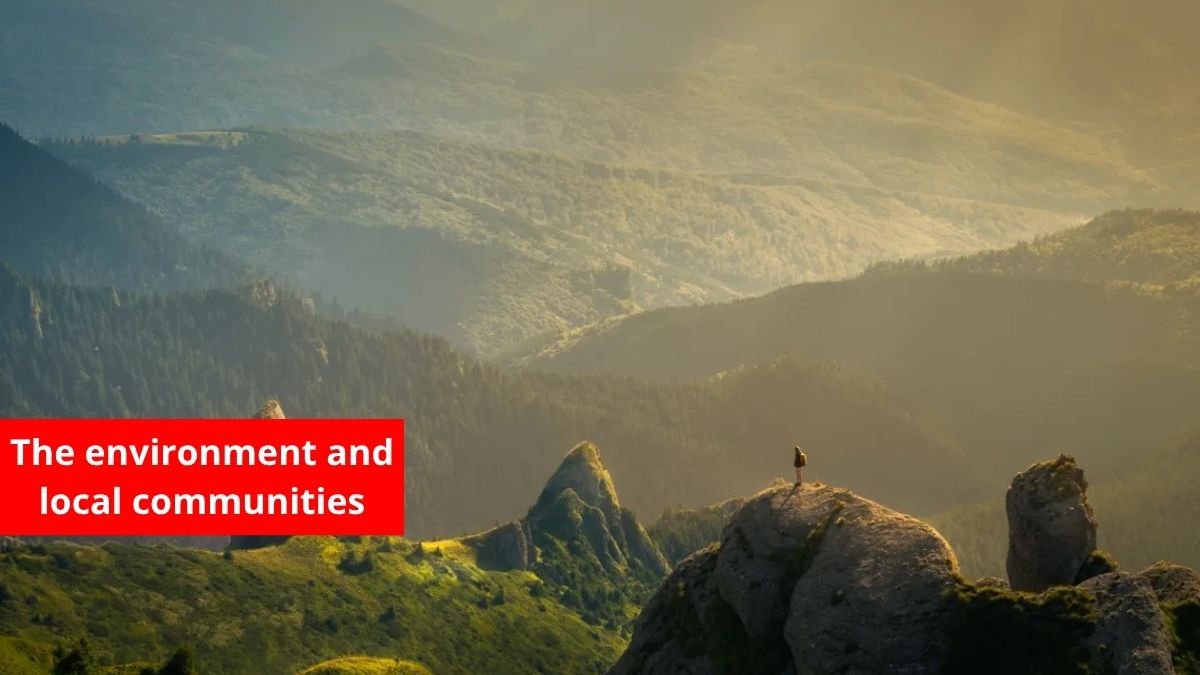Ecotourism: Now travelling environment does not only mean seeing new places, but also protecting nature Nowadays, the trend of ecotourism i.e. responsible travel towards nature is growing very fast. Especially the new generation no longer wants to be limited to just travelling, but wants to travel with purpose. People are now liking such trips where they can help local communities, save nature and contribute to fighting climate change. If you also want to learn something new, understand different cultures and meet like-minded people, then ecotourism is a great option for you.
What is ecotourism?
Ecotourism means travelling which helps in seeing the beauty of natural places as well as protecting the environment and developing local communities. In this, you go to places like national parks, forests, mountains, rivers and seashores, but with full responsibility and sensitivity towards the environment. Its purpose is not only to have fun, but also to save the earth and its biodiversity.
Under ecotourism, you can not only see the beauty of nature, but also participate in environmental projects through volunteer work. Such as tree plantation, cleaning garbage, cleaning beaches, or helping to protect wildlife. Apart from this, you can also contribute to the economic development of local businesses and handicrafts by supporting them.
How to start ecotourism?
Ecotourism is very easy to adopt. First of all, whenever you plan a trip, think about how you can do something good for the nature of that place and the people there. Some easy tips are given below:
Shop from local businesses: Instead of a big hotel or branded restaurant, stay in local dhabas, homestays or guesthouses. Buy local handicrafts or goods. This provides employment to the people who live there.
Reduce plastic use: Pack a reusable water bottle, cloth bag, and metal straw before you go on a trip. Avoid single-use plastic.
Don’t litter while traveling: When visiting national parks, forests, or beaches, make sure you don’t leave any plastic or other trash behind. Carry back whatever you brought with you.
Choose eco-friendly transportation: If possible, walk, cycle, or use public transportation. This reduces air pollution and fuel consumption.
Benefits of ecotourism
Ecotourism not only benefits the environment, but it also benefits both travelers and local communities. Here’s how:
Protecting the environment: Ecotourism promotes responsible use of natural resources. Such as the use of solar energy, low energy consumption, and avoiding the use of plastic. This reduces the amount of pollution and waste and protects forests, rivers, and marine life.
Employment to local people: Ecotourism provides employment to guides, hotel staff, cooks, handicraft artists and others. It becomes a source of income for communities that are usually poor and settled in rural areas.
Education and awareness: When tourists participate in projects where they can learn something new, such as identifying birds, knowing about plant varieties or marine life, it increases their knowledge and understanding. It also spreads awareness towards environmental protection.
Cultural understanding: By interacting with local people, one gets a chance to know their customs, food, language and lifestyle. This not only improves the tourism experience, but it also increases cultural exchange.
Benefits for local communities
Local communities get many benefits through ecotourism. Such as:
- New jobs are created.
- The market for their traditional knowledge, such as knowledge of herbs or handicrafts, increases.
- Funds are received from the government and NGOs for environmental protection.
- Environmental education is promoted in schools.
How is it beneficial for the environment?
If you follow the rules and travel responsibly during ecotourism, it benefits nature greatly. For example:
- Illegal deforestation can stop because people understand the value of forests.
- Waste is reduced and cleanliness is maintained.
- Animals are not harmed because tourists respect their habitat.
- Principles of ecotourism
- Respect the local culture: Respect people’s customs, religious places, clothing and language.
- Give preference to local products: Shop from local markets, try local food.
- Do not take anything from natural places: Do not take any stone, plant or other natural thing to take home. This can harm the ecosystem.
- Adopt sustainable transport: Walk or cycle for short distances.
Why choose ecotourism?
Ecotourism is not only a great way to travel, but it is also a responsible way to protect the earth. It connects travelers with nature, teaches them how they can protect the environment, and gives them a chance to participate in social work.
Precautions are also important in ecotourism
Although ecotourism has many benefits, it can also cause harm if done incorrectly.
Therefore, it is important to gather information about wherever you go. See whether that project or hotel is really working in the interest of the environment or is just promoting it.
Conclusion
Ecotourism is a beautiful and responsible way to see the world. It is not just a journey, but a mission – to save the earth. If you are also thinking of spending your next vacation, then definitely adopt ecotourism. It will change your life as well as keep the earth safe for future generations.
